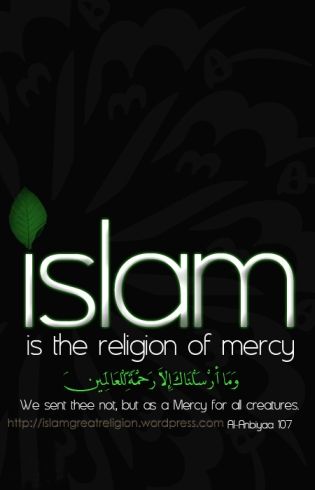Alá (azzawajal) dice en el Coran (a lo que se puede traducir al español):
“No hay nada que se Le asemeje.”
(42:11)
Sin embargo, ¿porqué los cristianos dicen que Dios es Jesús o que Dios engendró un hijo?
Los atributos de Dios son distintos a los del ser humano. La única similitud que existe entre los nombres y atributos de Dios y aquellos de los seres humanos son en nombre, pero jamás en grado.
Los atributos de Alá (el nombre árabe para decir Dios) son libres de cualquier deficiencia humana. Como musulmanes, a Alá lo podemos referir sólo como Él se ha descrito en el sagrado Corán o como el Profeta Muhammad (salalahu alaihi wa salaam) lo ha descrito.
Inclusive, los nombres an-Naasir y ar-Rasheed son nombres que no le debemos de dar a Alá (azzawajal), ya que no se encuentran en el noble Corán ni en los auténticos hadices. Sin embargo, estos y otros nombres se encuentran en las listas de los 99 nombres de Alá, pero desafortunadamente, estos hadices no son auténticos.
El estudio de tawjeed o la unicidad de Alá es un estudio fundamental en cualquier musulmán. Te alejará de las innovaciones en la religión y te ayudará a entender mejor quién es Alá, conforme a lo que Él nos ha revelado con sus profetas.
En el estudio del tawjeed al-asmaa was sifaat, o lo que se puede traducir a la unidad de Alá en sus atributos y nombres, debemos de entender lo siguiente: que nos referimos a Alá sólo como son son mencionados en el Corán y los hadices auténticos, pero sin atributos de su Creación.
Sabemos que los cristianos y los judíos creen que Alá pasó 6 días creando el universo y en el 7mo descansó (Génesis 2:2) Es por esto que los cristianos y los judíos se toman el sábado o el domingo como día libre y consideran trabajar en uno de estos días como un pecado.
Este atributo es meramente humano; todos sabemos que nosotros hacemos trabajo pesado y debemos de descansar para recuperarnos. Decir que Alá se cansa como su creación es atribuyéndole una acción solamente de su Creación y no digna para su Majestad.
Además, en la Biblia y la Torá, Dios se arrepiente de sus malos pensamientos en la forma como lo hacen los humanos cuando nos damos cuenta de nuestros errores. “Entonces el Señor se arrepintió del mal que dijo que había de hacer a su pueblo.” (Éxodos 32:14)
Además de esto, los cristianos han pintado, moldeado y creado figuras innumerables con apariencia humana y las han llamado “imágenes de Dios.”
Si pueden atribuir características y acciones meramente humanas a Dios, no es de ningún asombro que los cristianos aceptan a Jesús (paz y bendiciones) como Dios, o que Dios haga un acto animal de “engendrar” un hijo, cosa que solo se hace en la Creación.
Una vez que las grandes multitudes acepten el concepto de Dios siendo como su Creación y teniendo una figura humana, no es de ningún problema para ellos aceptar a Jesús como Dios.
Es más, me encuentro casi segura que lo hacen sin darse cuenta. Primero, por experiencia propia. Mis días como cristiana fueron una gran mentira en la que me introdujeron sin derecho a preguntar ni cuestionar las creencias que ni en la misma Biblia se mencionan. Por ejemplo, la trinidad nunca es mencionada en la Biblia, ni lo es el signo de una cruz. Nunca Jesús utilizó una cruz sobre su cuello ni le dijo a sus seguidores que lo hicieran.
Hoy escuché un comentario y la mujer le decía a mi mamá: “Recuerde a Dios siempre, y repita: Jesús, Jesús, Jesús…” Yo me preguntaba, ¿Jesús o Dios? Y me recordé que los cristianos creen que los dos extrañamente pueden ser uno. Que el Creador puede ser la Creación. Que lo infinito puede ser lo finito. Que el ignorante (ya que vienen varias partes en la Biblia donde Jesús no conocía de algo) puede ser el Conocedor del Universo.
Ilógico, pero lamentablemente es una falsedad en la viven los cristianos.
Nosotros como seres finitos no estamos en ninguna posición para definir al infinito Señor de todas las creaciones.
Puede parecer un punto muy relevante o simple, pero se debe de definir y mantener firme para prevenir cualquier descripción falsa a Alá (el nombre árabe para Dios y el que utiliza Alá para si mismo en el Corán).
Si buscas conocer sobre la verdad, no hace falta asistir a una mezquita o hablar con un musulmán o musulmana para conocerlo. Simplemente leyendo el Corán encontrarás tus respuestas.
Yo sé que yo las encontré, después de tantos años de confusión y de ignorancia. Alá es el más Misericordioso, el más Beneficioso: ar-Rahman, nir Raheem y nunca es tarde para conocer el mensaje de Él, el cual vino con cada profeta y mensajero de Dios; con Abraham, con Noé, con Moisés, con Jesús, con Muhammad (paz y bendiciones estén sobre todos ellos) y muchos más.
Insha’Allah te haya beneficiado. Que Alá (azzawajal) nos tengan siempre en el mejor estado de fé (imaan), de salud, que siempre le agradezcamos todas sus bendiciones, que lo alabemos solo a Él, el único digno de adoración, y que nos abra el corazón y nos ilumine con el Corán. Ameen.
















